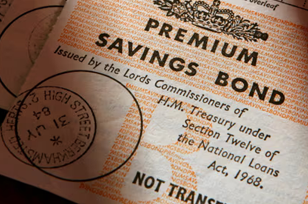Savings explained
Putting money aside for life’s unexpected curve balls, larger purchases and life changing events gives you more control over how you live. No one’s saying it’s easy to squeeze out a ‘savings’ portion of your budget, but it really is worth the effort. In fact your household budget is a good place to start. What little costs can you eliminate, that then create or add to your savings? Every penny does count and lots of little savings habits can accumulate into a substantial savings pot with time.
Excellent savings fact
- Compound interest paid on your savings account
The money you put into your savings account earns interest, then that interest earns interest = compound interest!
Savings Top tip
Organise your saving so that you have a standing order or direct debit going into your savings account around payday. Then it’s done and you are not tempted into spending it on anything else. It is so satisfying to see the total grow month by month.
Choosing a savings account
As with many financial products, the range of savings accounts on offer is a bit bamboozling.
Here’s a basic breakdown of the main types of savings account, there are variations between banks and building societies.
- Instant, easy access accounts – you can get to your money as and when you need it, with no withdrawal fee. Will possibly have a higher interest rate than your normal current account.
- Savings accounts – designed to save regular monthly amount. The interest rate is a bit higher, but read the rules detailing how much you are allowed to put in and take out.
- Fixed term deposit accounts – to save an amount of money for a ‘fixed’ period of time. The interest rate is also ‘fixed’ so you know how much you will have at the end of the term.
- Index linked accounts – your savings are tied into a set time period, but the interest fluctuates in line with inflation. This means that you cannot be certain how much you will have at the end of the term.
- Cash ISAs – tax free savings accounts! The amount you are allowed to put in these accounts each year is defined annually by the government. Cash ISAs are normally structured the same as a basic deposit or savings account. These are available from the age of 16.
Things to consider:
- Ask yourself – what am I saving for?
This can easily answer the ‘type of account’ question. For example, if you are setting up a ‘rainy day’ fund, then you don’t want your money tied up in a fixed term account. You need an instant, easy access savings account that you can get to in an actual emergency.
You can have more than one savings account at a time, so you can really match your account to your needs. - The old switcheroo
Yes, compare and switch time again…savings account providers lure you in with their high interest rates, which are almost always only for a set period of time. At the end of that time the rate may fall disappointingly low. Now you need to have a look around and find a better deal to make the most of your money. If you know that you are not going to devote any time to the switching accounts process, then ignore the tempting deals and just go for an account with good rate that has been stable over time. - Watch out for fees
Fixed term accounts are great for earning higher interest. But there is no instant access option and if you need your money before the end of the agreed term there is usually a hefty fine. So be sure that you can comfortably leave your money in one place for that length of time. - Protection
Under the rules of the Financial Services Compensation Scheme, up to £85,000 of your money is protected in one authorised firm. Some different banks are actually part of the same authorised firm. If you have savings above £85,000, you may want to check this and, if necessary, move them to another authorised firm. - Tax efficiency
If you are not paying income tax, then make sure your bank or building society is not automatically deducting the tax from your interest payments. Remember – ISAs are tax-free for everybody.














